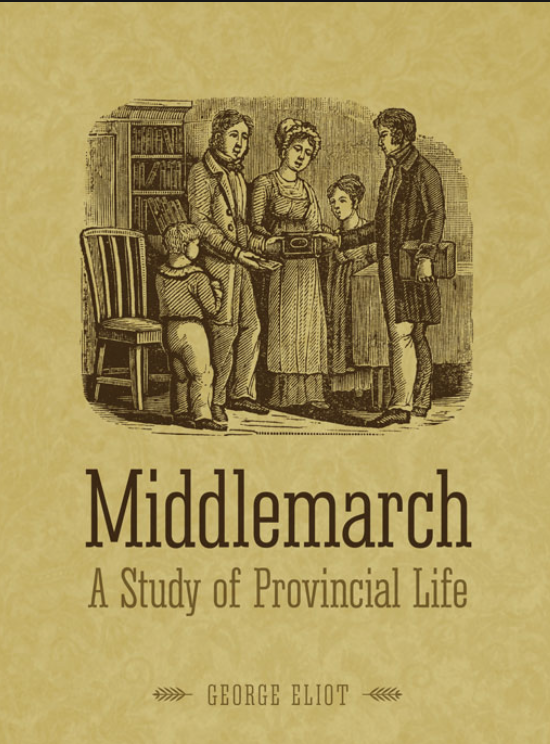Literature and the Law: Middlemarch
There are a number of Equity-related issues that Middlemarch brings to the fore, and which have been brought forcibly to my mind whilst perusing the module and flicking through my dusty paperbacks.

One is donatio mortis causa: a Victorian doctrine in name and nature, of the ‘death bed gift’. Mary’s uncle, having executed his will upon his four-poster, surrounded by gaggles of suspiciously concerned relatives suffers a frenzied, midnight fit of repentance, pressing Mary to open his chest and change his will. She refuses to do it in such inauspicious circumstances, inciting him to wait until morning, when all is right and proper. By morning (of course), he is dead.
The question then, of course, is what is the true state of the will? The scenario raises important ethical and legal questions. Was the uncle in his right mind in this midnight episode and did he have sufficient capacity to execute this change in his Will? The Wills Act 1837 states that he must have had to render it binding. Mary could count as a witness – but as a witness, she is unable under the Act to benefit herself: any gift he made in a fit of donatio mortia causa to her would be automatically invalidated. Moreover, not just one, but two witnesses need to be present.
As it happens, the will is left unamended – but is Mary frustrating here the intentions of the testator, so paramount and sacrosanct in the English court system?
The story also contains, in a horrifying, 19th-century twist, an exclusion clause, inserted by the long-suffering Mr Casaban, in a final attempt to deprive his wife of lasting happiness and peace. She is allowed the money and the estate: as long as she doesn’t marry Mr Ladislaw, with whom he knows, bitterly, that she is in love. Wizened and learned, he envies her youth and beauty – a fact all too sharply drawn out by the adaptation, where a hollow-eyed Casaban sits brooding over mountains of books, whilst Dorothea sweeps, her hair thickly plaited, out from the house onto the moors and the farmlands. She rides and walks and converses spiritedly with the tenants of her father’s land, whilst he lurks in the shadows, pen in hand, muttering to himself about his magnum opus.
The 1832 Reform Act also lurks, interestingly, in the background of the story, as the quaint English historical backdrop against which the romantic dramas are played.
The novel is also second-handedly concerned with the dregs of the English feudal system: the uneasy relationship between Dorothea’s uncle as landed gentry and wealthy landowner, and the tenants that scrounge and scrape to make ends meet. Dorothea, compared in the prologue to Theresa of Avila, expresses Christian concern for their plight.

It is a novel acutely conscious of the position of its small-town inhabitants within the legal order, and demonstrates the continuous historical and literary relevance of the law.
Iona Makin is a current GDL student, and recent (2023) BA English graduate of Cambridge University. She is particularly interested in criminal law and personal injury. She loves long distance running and cross country, and reading long classical novels and poetry. She is also a (converted) fan of Classical Hollywood, and interested in film theory and visual culture. She is a member of the 2023-24 Lawbore journalist team.
